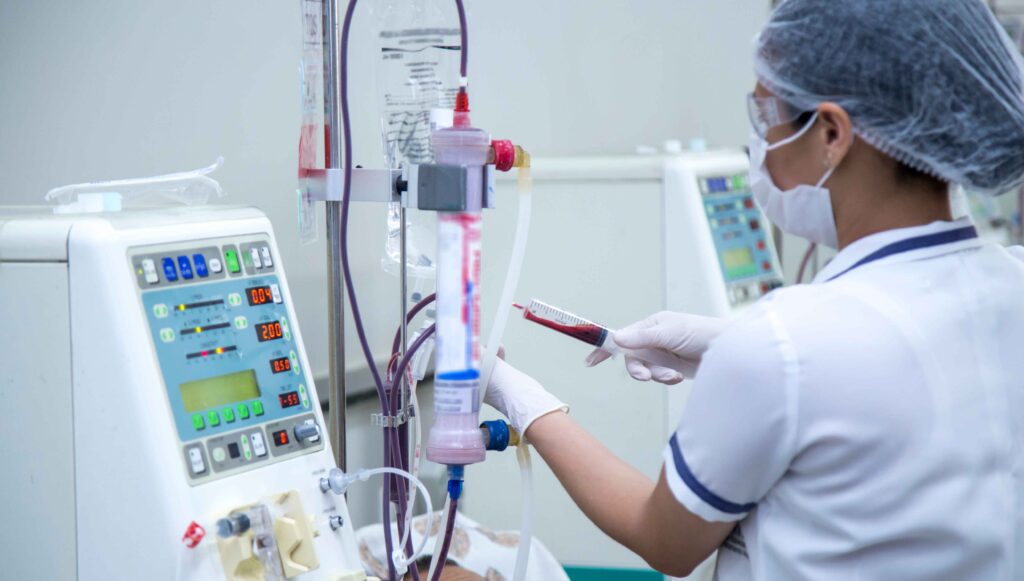The patient’s family members must provide functional assistance with appointments, eating, and household work, offer emotional support by listening and supporting their relatives to continue with hobbies and autonomy, and learn about dialysis and the respective diet and health requirements of their relative. It’s also important that the families take care of themselves, have emergency strategies in place, and advocate on behalf of the patient through open communication with the care team.
Things families of dialysis patients need to know
Seeing a loved one experience any kind of adversity can be frustrating and lead to emotional distress. Most of the time, people do not want to even think about such things when their loved one is experiencing illness or complications. The disheartenment and pain felt by the families of dialysis patients are unexplainable; yet, they tend to have the need to do their best in trying to make the process better for the one undergoing dialysis. Now, yes, the care and feelings of the dialysis patient exist, but one may not be aware of the proper steps to extend help.
Know and understand the treatment.
Kidneys are meant to filter out the waste and excess fluid in your bloodstream. Yet, when kidneys fail, this process is artificially implemented so that the individual does not get ill or develop further complications with excess toxins in their blood. The procedure is called dialysis; nonetheless, every patient does not need the same regimen. Therefore, being their family member or closed relation, it is vital to learn the medical path opted by experts.
Make sure to show up through lifestyle modifications.
While dialysis alters one’s diet, one’s lifestyle also undergoes alteration. As someone who is close to them, it is important to extend help with sensitivity. Rather than being a perpetual reminder of the condition, channel your efforts in making them stronger through the transitions. You can assist them in joining support groups or workshops with them that offer advice on how to cope with such conditions.
Attempt to arrange a living donor for them.
It may also be the case that finding a kidney donor could be difficult and not everyone who is willing to donate would find a match. Thus, the process itself might not be easy. In that case, if you yourself are not the match, you can always attempt to search for a donor.Inquire of the patient whether or not they would be comfortable sharing their story on social media and to talk about speaking with other family members and friends to look for a match. These are difficult and intimidating conversations to have, so it is best to be as considerate as possible to the patient.
Search for symptoms of depression.
Dialysis patients are even more prone to fall into depression. As a care giver, you can also be a good observer. In case you observe symptoms of fatigue, sleep disorders, headache, loss of appetite, mood changes or withdrawal make sure you see a doctor. Encourage the individual to open up their mind to you, and help them seek the right professional guidance.
Conclusion
Briefly, family members have an important role in providing support to patients undergoing dialysis through acquiring knowledge of the treatment, helping with adjustment of lifestyle, and emotional support. Whether it is being aware of depression symptoms, providing assistance with household chores or even researching a possible kidney donor, your being there can reassure the patient and give them hope.
Frequently Asked Questions
Q. How to support a family on dialysis?
Be clear in your suggestions of assistance, and think about the needs of the family and how well they are able to keep their immune system up if you visit.
Q. What is a good gift for a dialysis patient?
blankets and pillows
Q. What do dialysis patients need at home?
which differ depending on treatment and a clean space to treat in their house with proper access to water and plumbing to dispose of waste.
Q. What do dialysis patients need?
Dialysis patients require a tailored renal diet with restricted sodium, phosphorus, potassium, and fluids regular medication.
Q. How much equipment do you need for home dialysis?
For dialysis at home, you will require a treatment space with a comfortable chair and a dedicated clean area for supplies.



